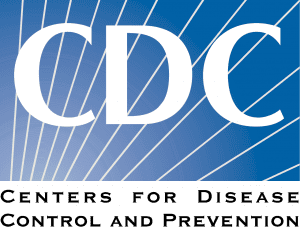Have you ever wondered if your food is safe to eat? Maybe there was a recall on romaine lettuce, or food went unrefrigerated due to a natural disaster or simply because of a loss of electricity. The consequences of consuming contaminated food or water can be life threatening, majorly disruptive to one’s health, and unpleasant. To help combat foodborne illness, and raise awareness of food safety practices, the United Nations General Assembly established World Food Safety Day on June 7th, jointly facilitated by the World Health Organization (WHO) and the Food and Agriculture Organization of the United Nations (FAO).
According to WHO, "Every day, on average, 1,600,000 people get sick due to unsafe food, contaminated with bacteria, viruses, [and] parasites…. It affects all countries" — even the United States. The issue is one that is rapidly evolving as our food supply becomes increasingly interconnected. “Infectious agents know no borders,” says Dr. Daniel Griffin, co-founder and president of Parasites Without Borders (PWB). “Food safety is extremely important in maintaining health, and everyone plays a role in making sure food is safe to eat. If there is a potential or confirmed health risk associated with food consumption, every practicing physician and medical student should know the latest medical and basic biological information pertaining to diseases caused by eukaryotic parasites.”
Dr. Griffin and his passionate colleagues run PWB, a global nonprofit that uses education to help eliminate human suffering due to parasitic infections — and their resources are offered at no cost. “No one should have to suffer when we have the means to prevent it,” explains Dr. Griffin. “When you examine the literature, it’s the most vulnerable members of the population that experience the most serious effects.” According to WHO, “Children under 5 make up 9% of the population, but carry 40% of the foodborne disease burden, being at a higher risk of malnutrition and mortality due to unsafe food.” According to the CDC, numerous parasites like helminthic roundworms, tapeworms, and flukes can be transmitted in foods, such as undercooked seafood and meat, food contaminated by feces, or food service workers with poor hygiene or those working in unsanitary facilities. Symptoms of foodborne parasitic infections vary greatly depending on the type of parasite, reports the CDC, but can include diarrhea and other gastrointestinal symptoms, abdominal pain, muscle pain, cough, skin lesions, malnutrition, weight loss, and neurological.
Parasites Without Borders’ founders have had a lifetime of experience in teaching parasitic diseases to students of medicine, and they’ve compiled their knowledge into a comprehensive textbook on the subject, as well as an online course that enables students to become certified in parasitic diseases. To learn more about World Food Safety Day, visit WHO.
Situation Dashboards

World Health Organization (WHO)

Johns Hopkins University (JHU)

COVID-19 in US and Canada






